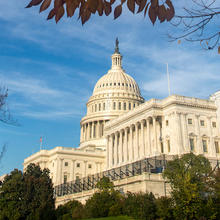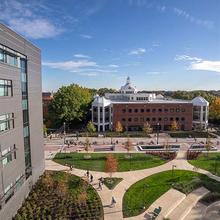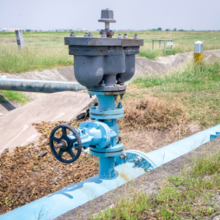- Groundbreaking mobile app captures and documents bruises to help survivors of interpersonal violenceJune 5, 2025
An interdisciplinary George Mason University research team is breaking new ground in using artificial intelligence to develop a mobile app to accurately capture and document bruises of victims of interpersonal violence.
- May 21, 2025
A partnership between the Brazilian Air Force and the College of Engineering and Computing is yielding explosive results in blast research, in what one faculty members describes as a win-win collaboration.
- May 14, 2025
Xiaorong (Sherry) Shan, a doctoral candidate in the Department of Civil, Environmental, and Infrastructure Engineering, understands that graduate school can feel isolating—especially for those far from home and family. Rather than turning inward, she chose to build community by reaching out.
- George Mason civil engineering students are helping local communities improve their flood resilienceMay 8, 2025
George Mason professor Celso Ferreira recently redesigned his Flood Hazard Engineering and Adaptation course to work with community partners to deliver real projects as part of the Institute for a Sustainable Earth’s (ISE’s) NSF Accelerating Research Translation (ART) Seed Translational Research Project (STRP) Program.
- November 11, 2024
George Mason University Engineers for International Development (EfID) improves water access in underserved communities abroad. Advised by Adjunct Professor Matthew Doyle, EfID students manage their own projects, secure funding through competitions, and build connections with industry professionals to make a meaningful impact worldwide.
- November 1, 2024
With a new $3.69 million grant, the Research and Engagement for Action in Climate and Health (REACH) Center—which includes George Mason—is set to tackle the urgent intersection of climate change and public health in the nation’s capital.
- January 23, 2024
Mason scientists and partners will leverage their climate expertise and the university’s resources into broader societal implications, thanks to a $6 million grant from the National Science Foundation (NSF).
- November 27, 2023
Emissions from coal-fired power plants, though steeply on the decline, are more than twice as likely to lead to mortality as other air pollutants.
- October 24, 2023
Certain types of mushrooms—or fungi—may have a place in infrastructure, potentially saving costly repairs and time. Xijin “Emma” Zhang, assistant professor in civil engineering, is researching this relatively new area of engineering and other green technology solutions for common challenges.
- October 23, 2023
Americans generally assume tap water is safe to drink; but rising temperatures could prove them wrong. Kirin Emlet Furst received a grant to study how extreme heat is challenging the disinfection of water in underground distribution systems.










